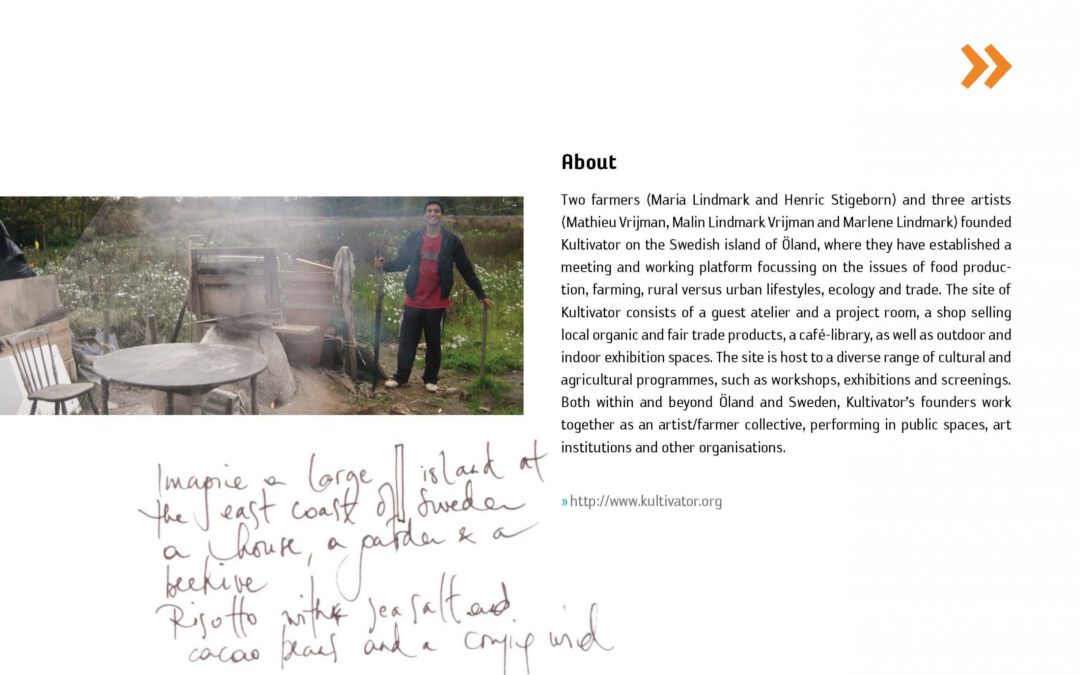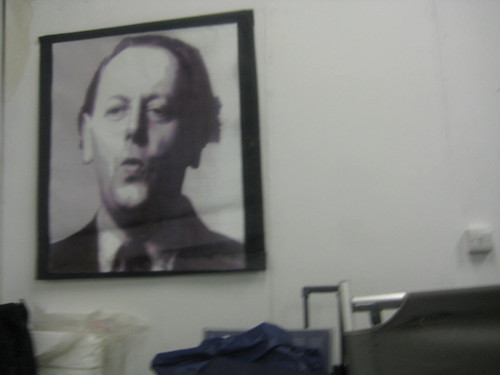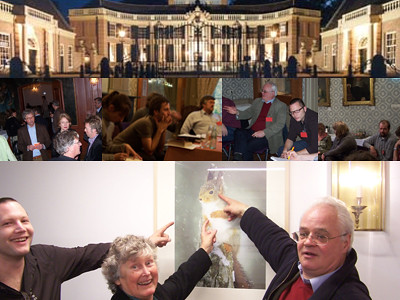
Open Sauces
Open Sauces
Participation.
Synaesthetic dinner over the future of food.
Foam, Brussels, Belgium
download the electronic edition of the “Open Sauces” cookbook in pdf format.

Participation.
Synaesthetic dinner over the future of food.
Foam, Brussels, Belgium
download the electronic edition of the “Open Sauces” cookbook in pdf format.


artist as farmers, and artists’ cultivation projects.
Residency and conference at The Elterwater Merz Barn by foundation Littoral, UK.


Linking Culture and agriculture as a strategy for a meaningful countryside.
Kasteel Groeneveld
